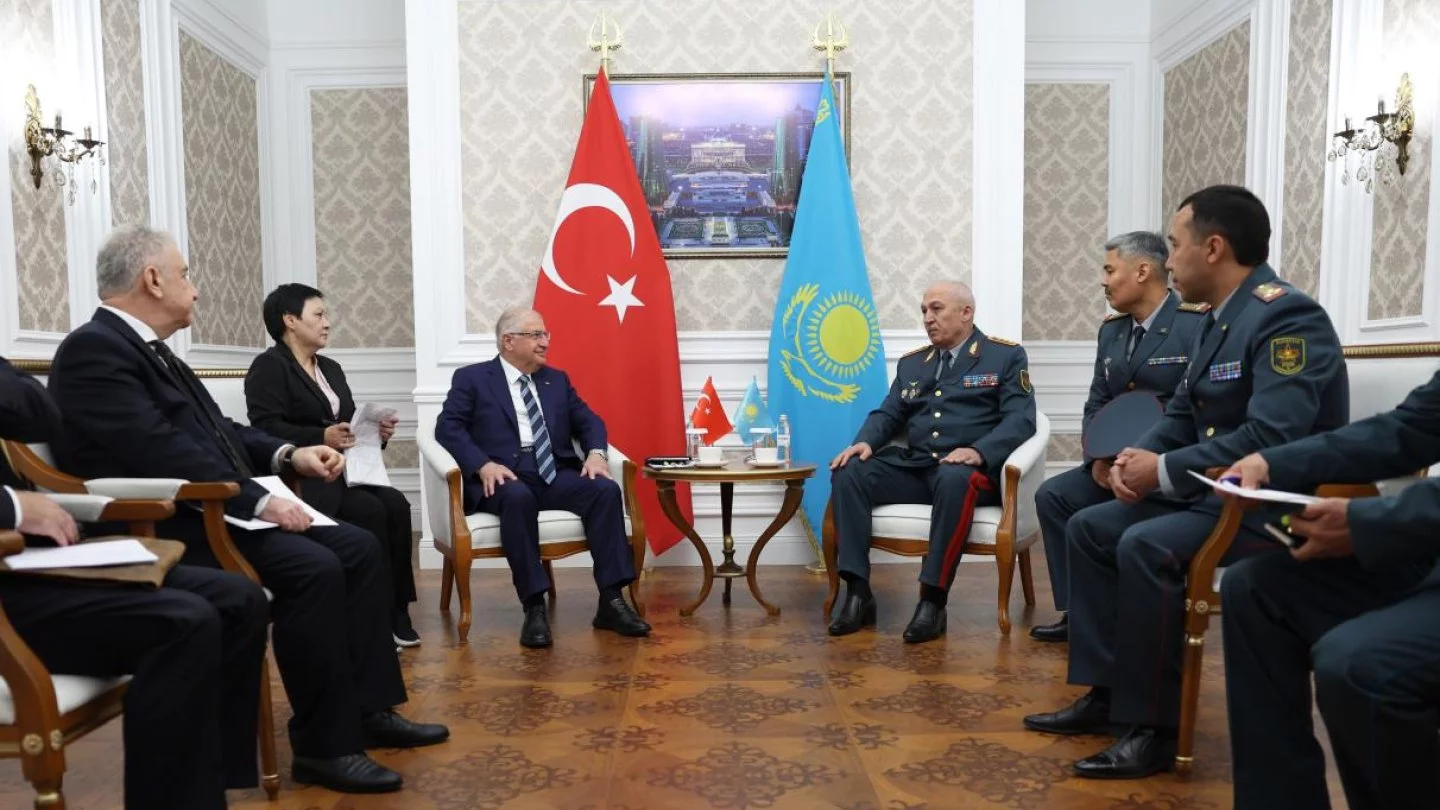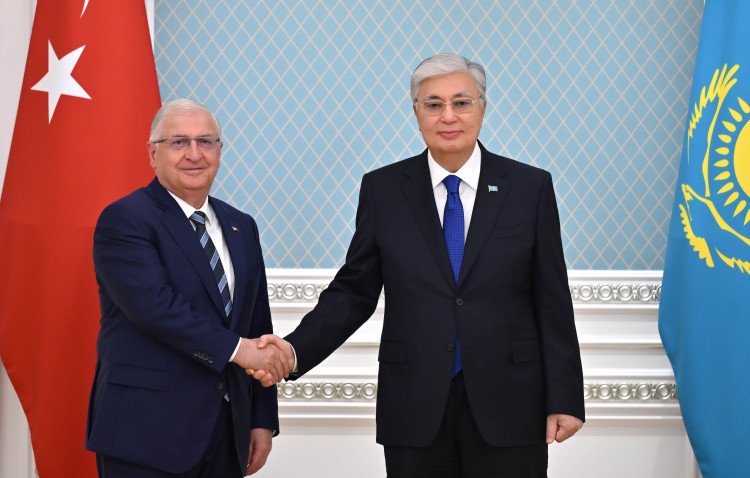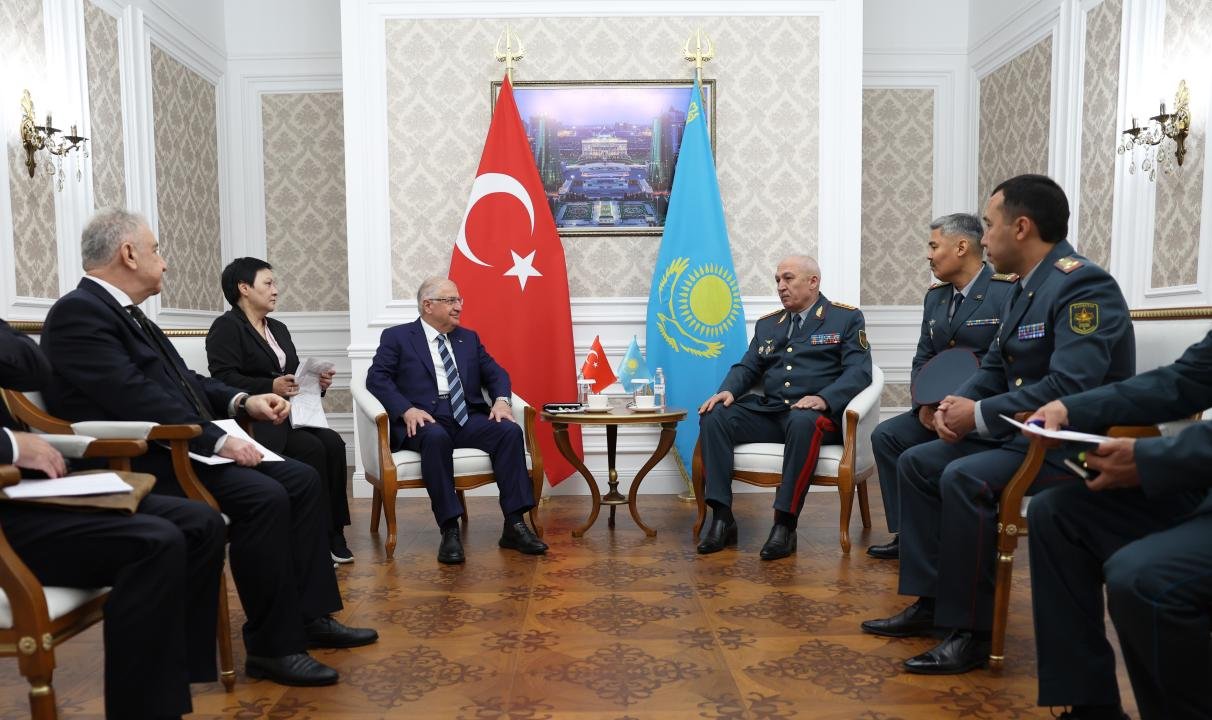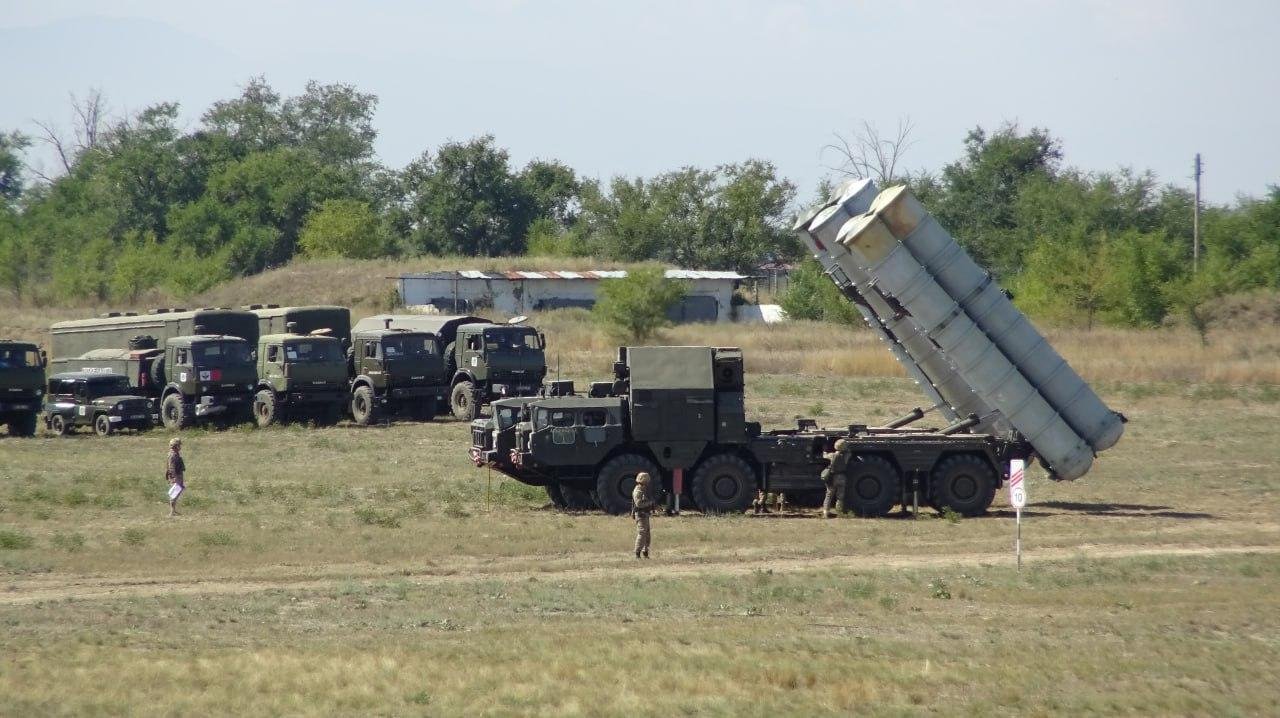Turkish Officials Make Rounds in Kazakhstan, Uzbekistan

Last week, Turkish officials paid visits to Kazakhstan and Uzbekistan. The meetings notably concerned military and security cooperation, reports Orda.kz.
Kazakhstan
On 11 September 2024, the President of Kazakhstan, Qasym-Jomart Toqayev, received the Minister of National Defense of Türkiye, Yaşar Güler. Toqayev stressed the importance of further strengthening strategic cooperation and partnership between Kazakhstan and Türkiye, while his interlocutor confirmed his country's commitment to further deepening relations. Security cooperation between the two countries was also a topic of discussion.

Yaşar Güler, meanwhile, met with his Kazakh counterpart, Ruslan Jaqsylyqov, the following day. During expanded talks, the parties discussed military-technical cooperation, combat training, and military education.
Our relations are built on a common history and mutual understanding. Kazakhstan is our reliable partner in Central Asia. We note the high level of training of Kazakhstani military personnel at our exercises and are ready to increase cooperation in these areas. In addition, the Turkish Armed Forces intend to deepen cooperation in matters of combat training, military education and the defense-industrial complex, Yaşar Güler emphasized.

Yaşar Güler had made similar trips to Turkmenistan and Uzbekistan back in June of this year.
Uzbekistan
As Gazeta.uz reports, Uzbekistan's State Security Service and Türkiye National Intelligence Service convened to discuss security matters on September 12, 2024.
The talks focused on combating terrorism and extremism, illegal migration, organized crime, and the detention along with deportation of persons wanted for involvement in terrorist activities.
The current visit of the Turkish delegation took place against the backdrop of intensive development of political contacts at the highest level between the two countries. Uzbekistan and Türkiye, as fraternal countries, share common positions on matters of countering modern challenges and threats, the Uzbek State Security Service stated.
On the same day, the Uzbek president, Shavkat Mirziyoyev, received a Turkish delegation: the Minister of Foreign Affairs, Hakan Fidan, the Minister of Internal Affairs, Ali Yerlikai, and Ibrahim Kalyn, the Director of the National Intelligence Service.
Further strengthening of Uzbek-Turkish relations, strengthening of interdepartmental coordination, and conducting joint activities to counter modern challenges and threats to security were addressed.
Joint Drills
While delegations met, from 10 to 14 September 2024, Uzbekistan and Kazakhstan held joint exercises to protect airspace.
They aimed at improving the coherence of the military authorities of friendly countries, working out the joint use of air defense forces and equipment, and obtaining practical skills for commanders to manage military units.

The drills involved front-line helicopters, army and military transport aircraft, and the forces and equipment of the air defense forces. Pilots also flew in the airspace of Kyrgyzstan and Tajikistan. The interaction of Air Defense Forces combat crews with command and control points of neighboring states, namely Kyrgyzstan, Tajikistan, and Uzbekistan, in cases of violating a state border or airspace use regulations was also worked out.
We conduct such exercises on a regular basis. They allow the military personnel of friendly countries to gain practical experience in carrying out joint tasks on air defense coordination of combat crews, as well as to increase the defense capability of our countries, Commander-in-Chief of the Kazakh Air Defense Forces Dauren Kosanov noted.
Kazakhstan and Uzbekistan indeed continue to cooperate. Last year, their special forces conducted joint exercises on reconnaissance and destruction of a simulated enemy, while Uzbek Defense Minister Bahodir Kurbanov received his Kazakh counterpart Ruslan Jaqsylyqov,
CSTO
Uzbekistan has long been a non-member of the CSTO, which includes its "active" members: Russia, Belarus, Kazakhstan, Kyrgyzstan, and Tajikistan. Armenia has suspended its membership on "all levels" over frustration with the organization. This decision was preceded by the CSTO failing to act in 2022 after Azerbaijan launched attacks and Baku's retaking of the disputed Nagorno-Karabakh in 2023.
Notwithstanding, the CSTO continues to operate as usual. This past weekend, the organization conducted exercises with its Collective Rapid Reaction Forces: "Interaction-2024," "Search-2024," and "Echelon-2024" in Kyrgyzstan. There is reason to believe Armenia will maintain economic ties with Russia despite Yerevan's attempts to seek deeper relations with the West. Yet, the overly complex peace agreement between Baku and Yerevan comes to the forefront as regional connectivity in the South Caucus hinges on it.
All-Around
Russian Prime Minister Mikhail Mishustin met with the Uzbek President on September 10, 2024, along with the above-mentioned meetings with Turkish delegations. They discussed implementing decisions and agreements reached during Vladimir Putin’s state visit to Uzbekistan from May 26–28, 2024.
On the other hand, Kazakhstan's Minister of Energy announced in July that they intend to increase the transit of Russian gas to Uzbekistan and Kyrgyzstan along with Turkmen and Uzbek gas to China.
In October 2023, the transit of Russian gas to the Republic of Uzbekistan was launched. In 2023, 1.28 billion cubic meters were transported, this year we plan to increase to 3.8 billion cubic meters with a further increase to 11 billion cubic meters per year, Minister of Energy Almatadam Satkaliyev said.
Although energy, economic, military, and security relations are not necessarily mutually inclusive, holistically, they demonstrate Kazakhstan's and Uzbekistan's continued pursuit of their multi-vector policies as regional leaders. Olaf Scholz's choice to visit them also corroborates their status as such.
Bolstering regional cohesion, particularly military and security, against the backdrop of the ISKP threat is indeed a must. This holds true considering the Taliban's lackluster capabilities to contain the group and Central Asian nations' attempts to reintegrate Afghanistan.
Latest news
- Trump’s Comments on Russia and China Surface in Audio Recordings
- Gollum and Two Stadiums: Comic Con Astana 2025 Opens in Astana
- Taraz Prosecutor’s Office Confirms Irregularities in Tender Process
- Chinese to Invest 70 Billion Tenge in "Underground" AI Project in Kazakhstan
- Thermal Power Plant Projects: Kazakhstan Looking for Alternatives for Russian Contractors
- Shymkent Theater Officials Accused of Embezzling Over 136 Million Tenge
- Ashgabat Responds to Media Report on Internet Access
- Rare Glimpse: Red-Listed Lynx and Secretive Badgers Filmed in the Wild
- Kairat Forward Becomes Youngest Kazakhstani to Score in Champions League
- Orda's Editor-in-Chief Targeted in Questionable Ownership Maneuver
- Businessman Tried to "Push Through" Astana Boiler House Project with a Bribe
- Foreigners Coming to Uzbekistan for Work Will Be Required to Take an HIV Test
- Toqayev Appoints New Director to Reorganized Anti-Corruption Body
- Former Employees of Key Witness Testify in Sarbasov Trial
- Kazakhstan Plans to Launch Direct Flights to New York, Tokyo, and Singapore
- Kazakhstan Expects Minimal Impact from U.S. Tariffs, Trade Ministry Says
- Hemp to Be Cultivated in Northern Kazakhstan for Industrial Use
- Tajikistan and Kyrgyzstan Sign Series of Cooperation Agreements After High-Level Talks
- Vostokmashzavod Disputes Railcar Downtime Charges from KTZ-Freight
- Alik Aidarbayev Appointed General Director of Kalamkas-Khazar Operating

